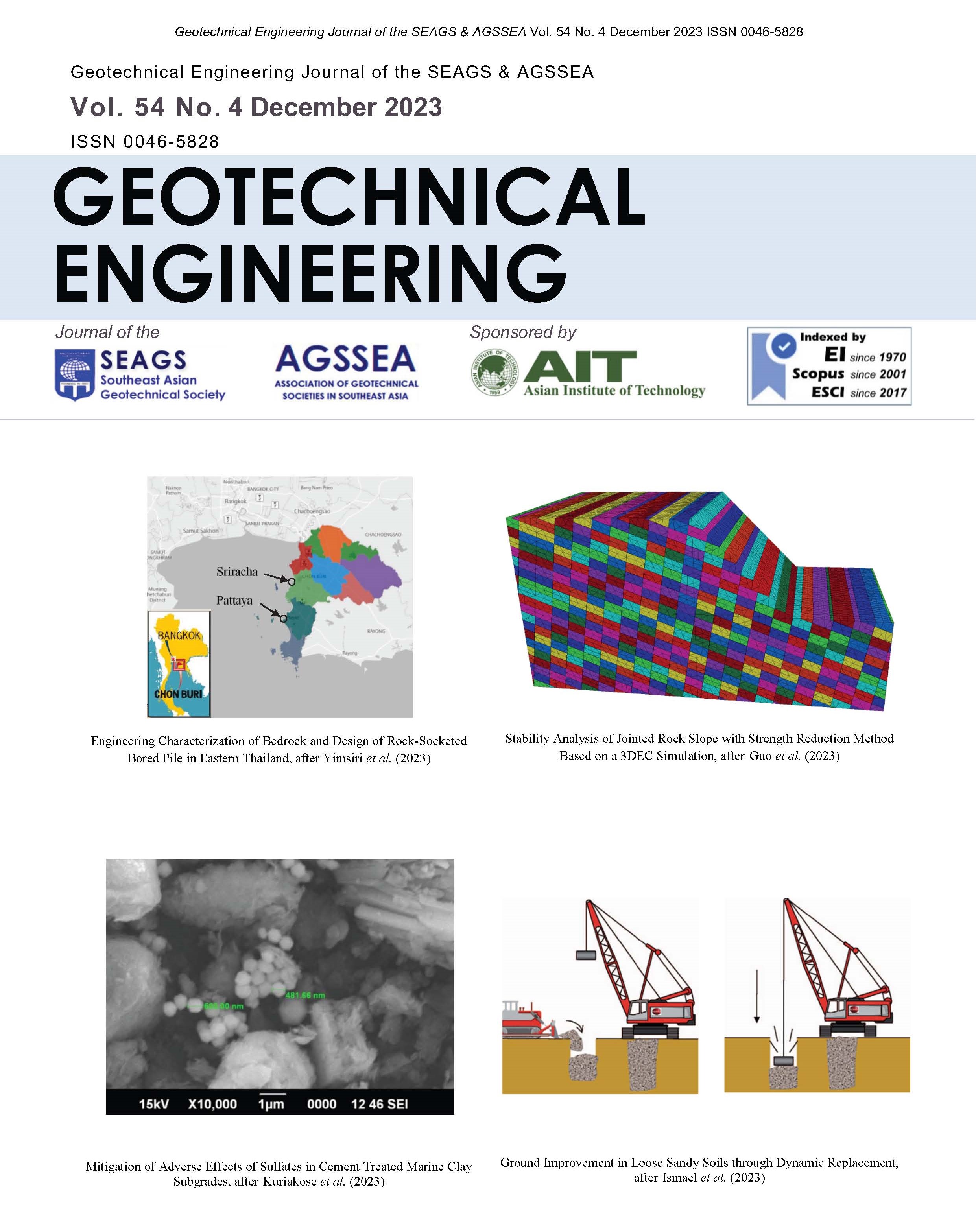Mitigation of Adverse Effects of Sulfates in Cement Treated Marine Clay Subgrades
Main Article Content
Abstract
Marine clays are normally characterized by high compressibility and low shear strength that contribute to many geotechnical problems and at times, necessitates the need to adopt stabilization with calcium based stabilizers. However, calcium based stabilizers adopted on sulfate bearing marine clay affects the strength of the soil. Researchers worldwide have reported many pavement failures due to sulfate induced heave in cement treated clay subgrades. In this study, barium hydroxide and sulphate resisting cement are introduced to prevent the sulfate attack in cement treated clay. Experiments were conducted on treated clay samples to determine the unconfined compressive strength and CBR value of cement treated sulfate bearing clays for prolonged curing periods. On the basis of the results obtained, incorporation of barium hydroxide and sulphate resisting cement gives notable improvement in the strength of treated clay samples and hence, these mitigation measures can be successfully executed in pavement clay subgrades.
Article Details

This work is licensed under a Creative Commons Attribution-NonCommercial-NoDerivatives 4.0 International License.
Copyright © 2019 Association of Geotechnical Societies in Southeast Asia (AGSSEA) - Southeast Asian Geotechnical Society (SEAGS).


